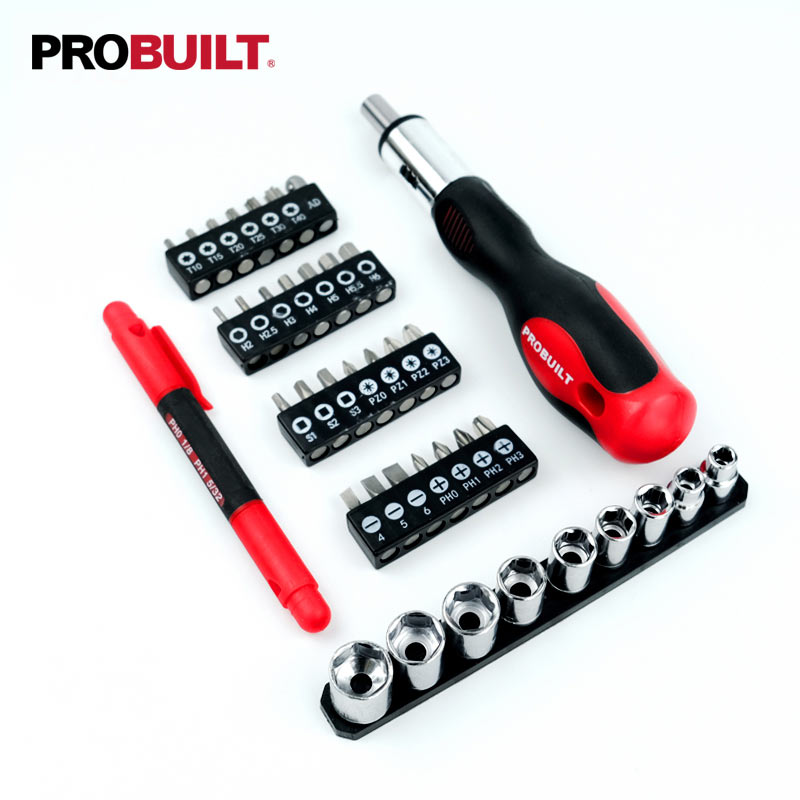+86 311 8533 5186
In the realm of hand tools and precision fastening, the screwdriver bit plays a vital role in determining both the quality of work and operational efficiency. With the increasing variety of screw head types across industries, selecting the correct screwdriver bit is more important than ever. As a professional screwdriver manufacturer,Below, we break down the most commonly used screwdriver bits and their typical applications:
1. Phillips bit
Appearance features: cross-shaped tip, slightly protruding in the center.
Common uses: home repairs, small equipment, electrical panels, etc.
Advantages:
Easy to center and facilitate quick positioning of screws.
Commonly found in various standard screws, highly adaptable.
Note: Control the force during manual operation to avoid the bit slipping or damaging the screw head.

2. Slotted Bit
Shape & Features: Single horizontal blade.
Screw Compatibility: Slotted screws found in light switch plates, antique furniture, and simple fixtures.
Advantages:
Simple design, widely available.
Can be used with manual or power screwdrivers.
Limitations:
Prone to slipping (cam-out).
Not suitable for high-torque or precision applications.
3. Pozidriv Bit
Shape & Features: Similar to Phillips but with four extra contact points for enhanced grip.
Screw Compatibility: Pozidriv screws, prevalent in European-manufactured products and flat-pack furniture.
Advantages:
Higher torque transmission.
Reduces cam-out significantly.
Tip: Use a true Pozidriv bit for Pozidriv screws—using a Phillips bit may damage both screw and bit.
4. Torx bit
Appearance features: hexagonal star-shaped head
Common uses: precision products such as glasses, home appliances, tools and equipment.
Advantages:
Even force, more stable feel during manual operation.
Screws can be tightened effectively without too much pressure.
Applicable people: maintenance personnel and handcraft enthusiasts who pursue high precision and high efficiency.
5. Hex (hexagonal) bit
Appearance features: hexagonal structure.
Common uses: furniture assembly, bicycles, kitchen hardware, etc.
Advantages:
Wide contact surface, not easy to slide.
Can easily transmit large torque.
Note: The screw size must be accurately matched, otherwise it is easy to slip or round corners.
Keep the bits clean: Dust or oil can affect the friction between the bits and the screws.
Use matching sizes: Inconsistent sizes not only damage the screws, but can also cause the tool to slip.
Keep a stable posture: Manual tools rely on the operator's control, and the correct wrist angle can avoid slipping.
Regularly replace worn bits: Especially in frequent use, the edges of the bits will become blunt and should be replaced in a timely manner.
The screwdriver bitmay be a small component, but in professional use, it’s a difference-maker in performance, productivity, and even worker safety. With the correct bit type, users can avoid stripped screws, damaged surfaces. For manufacturers, tradespeople, and distributors alike, investing in the right bit—matched to the right task—is a key to long-term success.

Copyright © Sinotools Industrial All Rights Reserved.. Technical Support: